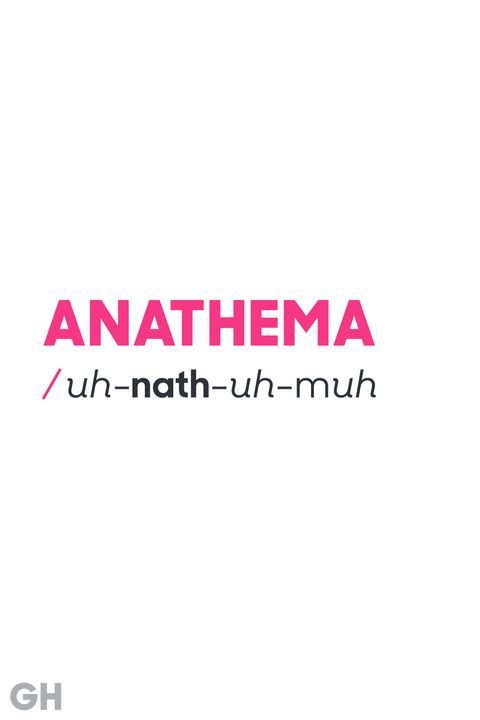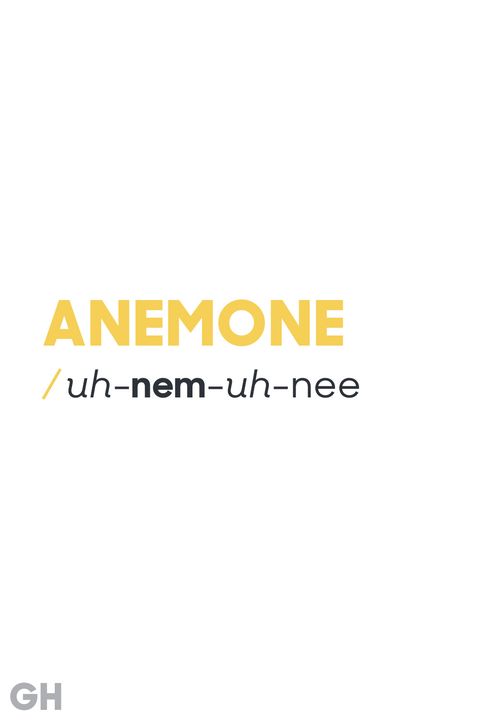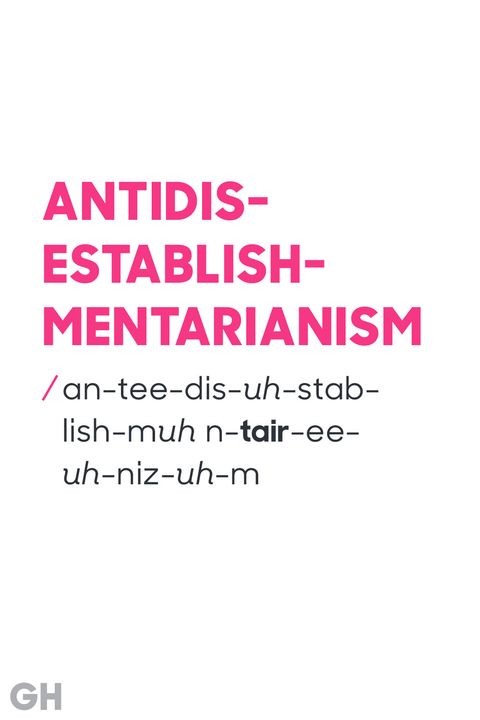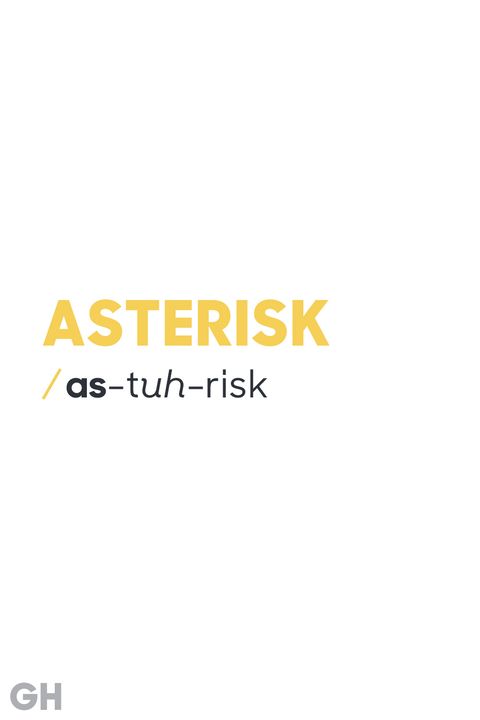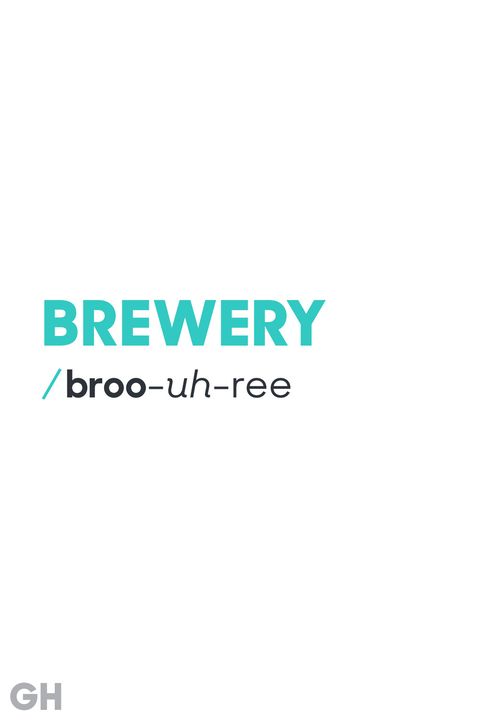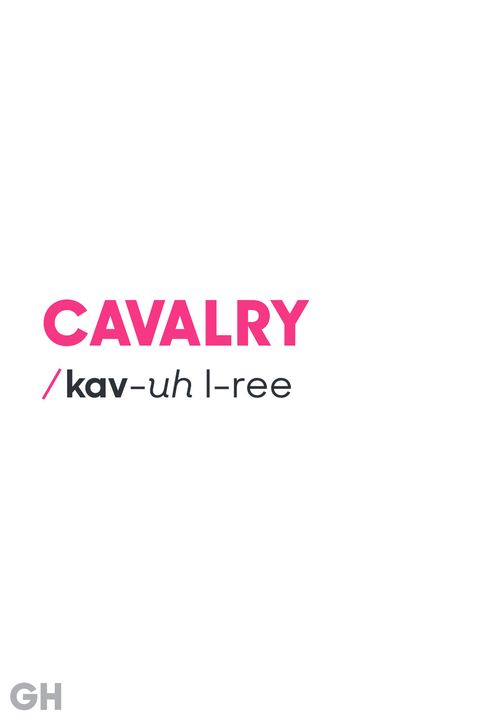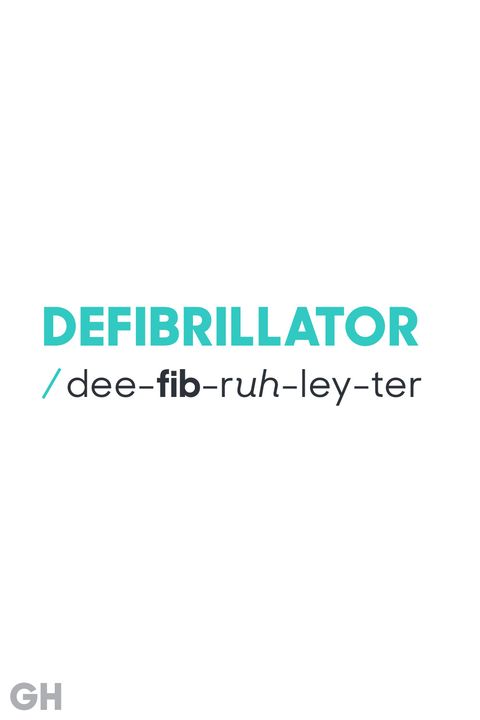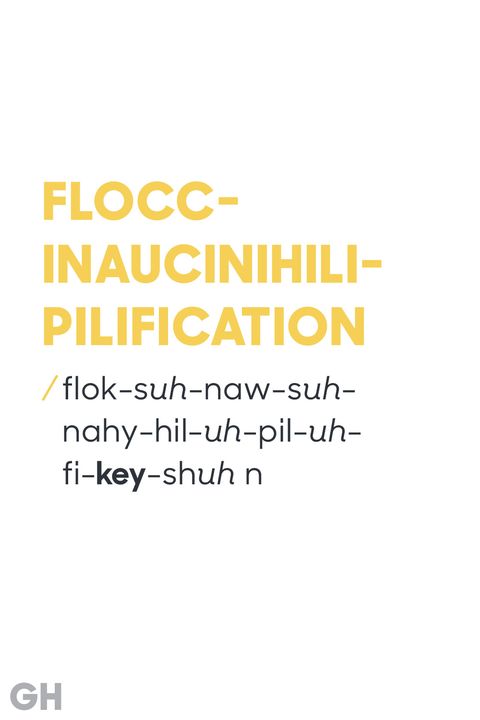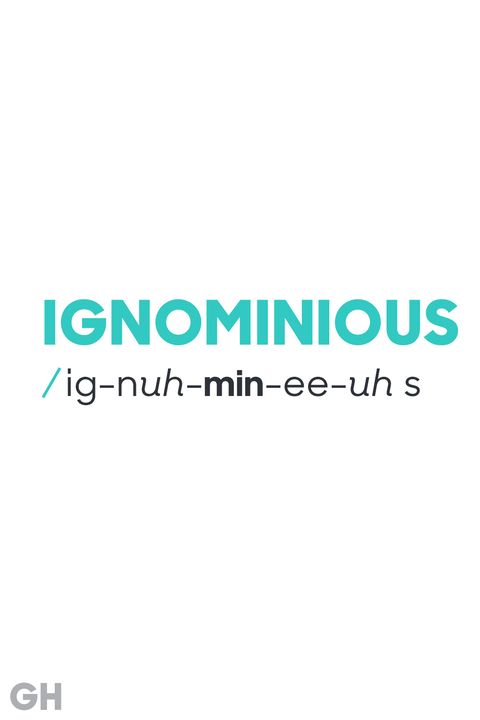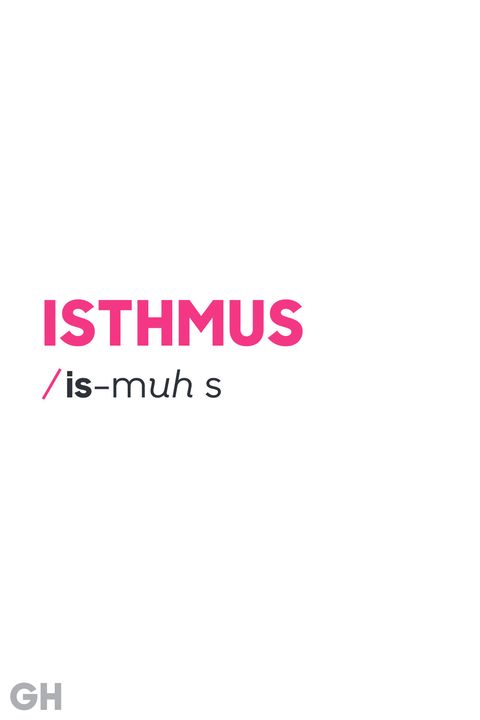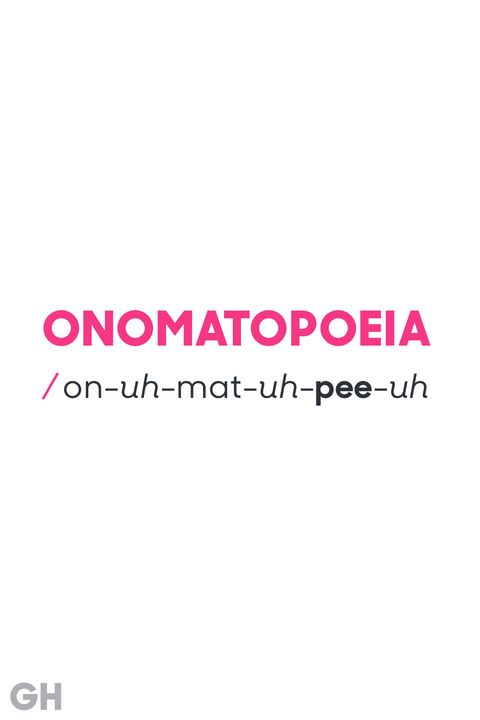One of the biggest challenges facing people who are trying to learn English as a second language is the thought that, there are so many hard English words to pronounce!
What makes a word hard to pronounce? Often times the
difficult words to pronounce for non-native English speakers are those that are spelled completely different from how they are pronounced.
Not all English words are pronounced phonetically. When a word is pronounced phonetically, it is pronounced how it is spelled. Take the word “know”, if it was pronounced phonetically, the “k” would be spoken. However, the “k” is not spoken and this makes “know” one of the English
language’s tricky pronunciation words.
Take a look at the
English vocabulary words below. These are hard words for kids to say, even if they are native English speakers, and that can trip up adults as well. So don’t be ashamed to look them up and practice the correct way to pronounce them.
1. Accede
How is it pronounced?
“ak-SEED”, emphasis on the second syllable
What does it mean?
To accede means to give your consent or approval to someone else’s actions. It can also mean that you agree with the opinions of a group.
2. Alias
How is it pronounced?
“AY-lee-iss”, emphasis on the first syllable
What does it mean?
An alias is an assumed name or identity.
3. Anathema
How is it pronounced?
“un-NATH-uh-muh”, emphasis on the second syllable
What does it mean?
This means that you dislike something or someone intensely
4. Anemone
How is it pronounced?
“uh-NEH-muh-nee”, emphasis on the second syllable
What does it mean?
Properly called a “sea anemone”, this is a marine animal that lives on reefs and ocean floors. It’s a sedentary animal that attaches itself to a particular area and doesn’t move, that many people think looks like a flower.
There is also a type of flowering land plants that are called anemones.
5. Antarctic
How is it pronounced?
“ant-AHRK-tik”
What does it mean?
The Antarctic is simply the South Pole.
6. Brewery
How is it pronounced?
“BROO-uh-ree”, emphasis on the first syllable.
What does it mean?
Why is it that words that have something to do with drinking are such hard words to say when drunk? This three syllable word is used for bars specializing in beer. They often brew their own beers.
7. Camaraderie
How is it pronounced?
“kah-muh-RAH-duh-ree”, emphasis on the third syllable
What does it mean?
This is the feeling of warmth and familiarity you get when around a group of trusted friends.
8. Cavalry
How is it pronounced?
“KAV-uhl-ree”, emphasis on the first syllable.
What does it mean?
Traditionally, the cavalry were soldiers on horseback. Now, cavalry is usually used to mean someone or something who offers help when you really need it.
9. Choir
How is it pronounced?
“kwah-yuhr”
What does it mean?
A choir is a group of singers. Traditionally, choirs sang religious songs during church services.
10. Colonel
How is it pronounced?
“ker-nul”
What does it mean?
A military officer.
11. Comfortable
How is it pronounced?
“KUHM-fer-tuh-buh”, with emphasis on the first syllable
What does it mean?
If you are comfortable, you are relaxed and at ease.
12. Defibrillator
How is it pronounced?
“dee-FIB-ruh-ley-ter”, emphasis on the second syllable
What does it mean?
If you watch a lot of medical TV shows, you might have seen this. It’s that device, with two paddles attached to wires that are held to someone’s chest to deliver a shock that is supposed to help restart your heart.
13. Deteriorate
How is it pronounced?
“dih-TEER-ee-uh-reyt”
What does it mean?
When someone deteriorates their condition grows worse. This can also be used to talk about a situation you find yourself in. Basically, things are getting bad.
14. Draught
How is it pronounced?
“draft”
What does it mean?
An alcoholic beverage, usually traditional kept in a keg. Like draught beer.
15. Epitome
How is it pronounced?
“ih-PIT-uh-mee”, emphasis on the second syllable
What does it mean?
Someone or something that is the perfect example of a quality or of a type.
16. Espouse
How is it pronounced?
“ih-SPOWZ”, emphasis on the second syllable
What does it mean?
When you follow or support a particular idea. Usually you are vocal and proud about your support.
17. Espresso
How is it pronounced?
“eh-SPRES-oh”
What does it mean?
When you order an “espresso” you are asking for a type of strong Italian coffee.
18. Explicit
How is it pronounced?
“ik-SLIS-it”, with emphasis on the second syllable
What does it mean?
This is not one of those hard words to say with a lisp, as you are supposed to sound like your lisping slightly. When you are explicit about something, you state it clearly and in complete detail.
19. Exponentially
How is it pronounced?
“ek-spoh-NEN-shuh-lee”, emphasis on the third syllable
What does it mean?
This is an adverb that means something is increasing rapidly.
20. Ignominious
How is it pronounced?
“ig-nuh-MIN-ee-uhs”, emphasis on the third syllable
What does it mean?
This is usually used as an adverb to describe and action that is considered disgraceful or dishonorable.
21. Isthmus
How is it pronounced?
“is-muss”
What does it mean?
This is the name of a geographical feature. An isthmus is a narrow piece of land that is located between two different seas.
22. Know
How is it pronounced?
“noh”
What does it mean?
This is a tricky word because it is an example of a word with what we call a silent “k”. To know how to pronounce “know”, you need to know it has a silent k.
23. Knell
How is it pronounced?
“nel”
What does it mean?
The rule about a silent “k” makes for tricky pronunciation words. Here’s another word where the “k” is silent and so is the second “l”. This word is used to refer to the ringing of a bell. Usually, this is a big church bell that makes a slow, loud noise.
24. Library
How is it pronounced?
“LAHY-brer-ee”, emphasis in the first syllable
What does it mean?
This is a building which contains a collection of books and other published materials.
25. Mauve
How is it pronounced?
“mohv”
What does it mean?
Mauve is a color. It is a shade of pale purple.
26. Mischievous
How is it pronounced?
“MISS-chiv-us”, with the emphasis on the first syllable.
What does it mean?
This is an adjective that basically means behaving in a way that causes “trouble”. A mischievous action is not bad or evil. It is usually playful and with no malice behind it.
27. Nadir
How is it pronounced?
“NAY-deer”, emphasis on the first syllable
What does it mean?
This means reaching the lowest point.
28. Neophyte
How is it pronounced?
“NEE-uh-fahyt”
What does it mean?
This word is used to refer to a beginner, someone who is new to a task, job, or a group.
29. Often
How is it pronounced?
“AW-fuhn”, emphasis in the first syllable
What does it mean?
If you do something “often” you do it a lot or repeatedly.
30. Onamatopeia
How is it pronounced?
“on-o-mot-o-PEE-a”, with the emphasis on the fifth syllable.
What does it mean?
This is a term for a word that refers to a sound. These words actually imitate the sound they are supposed to refer to, such as “roar” or “buzz”. It has six syllables which make it quite
a mouthful to pronounce, even for native speakers of English.
31. Otorhinolaryngologist
How is it pronounced?
“oh-toh-rye-no-lar-ing-GOL-uh-jee”, emphasis on the seventh syllable.
What does it mean?
This nine syllable word is the formal title of a specific type of medical doctor. This is a doctor who specializes in treating eye, nose, and ear conditions. The simpler way to refer to these types of doctors is as an ENT doctors.
32. Panacea
How is it pronounced?
“pan-uh-SEE-uh”, emphasis on the third syllable
What does it mean?
This refers to a remedy for illness.
33. Phlegmatic
How is it pronounced?
“fleg-MAT-ik”, emphasis on the second syllable
What does it mean?
This is someone who is easy-going. No matter what happens around them they remain calm and collected.
34. Penguin
How is it pronounced?
“peng-gwin”
What does it mean?
A penguin is a type of flightless sea bird. They are typically black and white.
35. Phenomenon
How is it pronounced?
“fi-NOM-uh-non”, emphasis on the second syllable
What does it mean?
A phenomenon is an event that is observable,
36. Puerile
How is it pronounced?
“PYOO-er-il”, emphasis on the first syllable
What does it mean?
When you think something is “purile” you believe it is foolish or childish.
37. Quinoa
How is it pronounced?
Either “KEEN-wah,” “ken-WAG, or “KEN-o-ah”
What does it mean?
Quinoa is an ancient grain that has grown in popularity in the recent decade because of its nutritional values. It’s considered a “superfood” and is actually a Spanish word.
38. Quixotic
How is it pronounced?
“kwik-SOT-ik”
What does it mean?
This is someone who is very idealistic, to the point that their ideas are impractical or unrealistic.
39. Rural
How is it pronounced?
“roor-uhl”
What does it mean?
When you say a place is “rural” you mean that it is located in the countryside.
40. Sanguine
How is it pronounced?
“SANG-gwin”, emphasis on the first syllable
What does it mean?
Someone who is sanguine is cheerful and hopeful, even if they are facing a bad situation.
41. Scissors
How is it pronounced?
“sizzors”
What does it mean?
These are two bladed cutting instruments that you use to cut into thin materials such as paper or cloth.
42. Sixth
How is it pronounced?
“siksth”
What does it mean?
When you say something is the “sixth”, your saying it is item number six in a sequence.
43. Specific
How is it pronounced?
“spi-SIF-ik”, emphasis on the second syllable
What does it mean?
This means that something is clearly defined.
44. Squirrel
How is it pronounced?
“skwi-rel”
What does it mean?
A squirrel is a bushy tailed rodent that lives in trees.
45. Staid
How is it pronounced?
“steyd”
What does it mean?
Someone who is staid is sedate and calm.
46. Successful
How is it pronounced?
“SUKH-ses-fuhl”, emphasis on the first syllable
What does it mean?
If you are successful in pronouncing this word, then you pronounced it correctly. When you are successful in something, you accomplished your aim or your purpose.
47. Surfeit
How is it pronounced?
“SUR-fit”, emphasis in the first syllable
What does it mean?
A surfeit is an extra amount of something.
48. Temperature
How is it pronounced?
“tem-PER-uh-cher”, emphasis on the second syllable
What does it mean?
This is a scientific measurement meant to gague the degree of heat that is present in an object or a substance.
49. Truculent
How is it pronounced?
“TRUHK-yeh-luhnt”, emphasis on the first syllable
What does it mean?
Someone who is truculent is quick tempered. They get into arguments or fights easily.
50. Worcestershire
How is it pronounced?
“WOOster-sher”
What does it mean?
A special sauce that originated in Worcester, a town in England. The town name is also pronounced the as “WOOster-sher”.
51. Zephyr
How is it pronounced?
“ZEF-er”, emphasis on the first syllable
What does it mean?
This refers to a breeze that is soft and mild.
Conclusion
If you want to learn how to correctly pronounce tricky vocabulary words, the answer is: Practice, practice, practice.
It’s also a really good idea to get a native language speaker as an English tutor who can listen to you say these words and help you with your pronunciation. You can also practice using these hard to pronounce words in conversation which will really help you learn them.
For free real time breaking news alerts sent straight to your inbox sign up to our breaking news emails
Sign up to our free breaking news emails
“Worcestershire”. “Choir”. “Sixth”. For some, these words may seem relatively normal and everyday – but to others, they represent an unrivalled linguistic challenge.
For almost two weeks, users of the online social platform reddit have been submitting what they consider to be “the hardest English word to pronounce”.
After more than 5,000 submissions, the message thread has become a fount of difficult vocabulary, with users from across the world sharing their favourites and personal experiences.
There are references to popular culture, some very creative tongue-twisters – and because of reddit’s points system, a rough consensus has emerged as to which are the hardest.
Here are the top 10:
10 — Rural
(Google Maps)
Submitted by user ‘mattythedog’, rural appears to cause problem particularly when repeated or put next a word with similar “r” sounds.
One user says: “I cannot say Rural Juror — comes out rurrrerr jerrrerr and sounds like I’m growling.”
A self-confessed Australian user says: “An aussie would pronounce it ‘ruhral jurah.”
“This one is entirely impossible for me as a German,” says another. “’Squirrel’ I can manage, but ‘rural’ can f*** right off.”
Best tongue-twister: “I want to be a juror on a rural brewery robbery case.”
Weather man says Welsh name
9 — Otorhinolaryngologist
(Getty)
One user, going for a word largely on the basis of its length, suggests this medical term for an ear-, nose- and throat-doctor.
But, as another points out, “that one looks like a beast, but once you break it down, it’s pretty easy to say”.
User THLycanthrope says: “Once you know what it is, it’s much easier. “oto-rhino-laryng-ologist” is literally “ear-nose-throat-scientist”.
8 — Colonel
David Cameron had attempted to shut down the investigations but was overruled by government lawyers, it was claimed
(Getty)
Submitted by a user who explains: “If you know that it’s pronounced «kernel», it’s easy to pronounce. But if you were new to the English language and didn’t know that, you would never pronounce it correctly.”
Another offers the “fun fact” that: “We took the French spelling (spelled and pronounced with r) and the Italian pronunciation (also spelled with an l).”
7 – Penguin
An overt reference to Benedict Cumberbatch, one user offered this popular submission presumably as an excuse to re-watch this video of the actor voicing a BBC documentary on the South Pacific.
Other users, presumably sticking up for penguin-kind, then try to pronounce Cumberbatch’s name: “Barelyspeaks Cantpronounce”, “Bumpercar Clutchisburnt” and “Buffalo Custardbath” are among the offerings.
6 – Sixth
Coincidentally sixth in our list, this word is rather explicitly criticised as: “What kind of word is that with an S and xth sound? F*** that noise.”
Best tongue-twister: “The sixth sick sheik’s sixth sheep’s sick.”
One user responds: “English is my only language but f*** you this is impossible.”
Another says: “Imagine what ‘eighth’ is like to a non-English speaker. Not one letter is pronounced the way it should be.”
5 — Isthmus
Submitted presumably due to the difficulty of the “s” and “th” sounds together, it means a narrow strip of land with sea on either side that connects two larger landmasses.
“Ithmuth,” is one reddit user’s attempt.
4 – Anemone
(Kevin McGee/Flickr Creative Commons)
Entered for consideration by one user who couldn’t even spell it, writing: “Annemm… amennome… annemmoneme… f***.”
Best tongue-twister: “In me, many an enemy anemone enema.”
Helpful advice provided by one user suggested: “I’d break it down like ‘Uh — Nem — Uh – Knee’.”
3 — Squirrel
(Newsflare)
One user says that: “From a foreign perspective, ‘Squirrel’ messes with German exchange students like you wouldn’t believe. To be fair though I can’t pronounce their word for it either.”
User ‘Torvaun’ provides the interesting (unverified) fact that during the Second World War, both sides apparently used each-other’s word for this small rodent as a test for spies.
“Interestingly,” Torvaun says, “in WWII ‘squirrel’ was used as a shibboleth by the English to detect Germans, and ‘Eichhörnchen’, the German word for squirrel, was used as a shibboleth to detect non-Germans.”
2 – Choir
User Kaktu submits: “As a foreign speaker: Choir. Seriously. Why?
Someone suggests helpfully that “it’s like ‘enquire’ but without the ‘en’”.
And bright spark ‘Gnat27’ says, to much popular acclaim: “I read that as ‘Enrique’ and was confused for a solid 5 minutes.”
1 – Worcestershire
The top submission, as one user puts it, “To the USA, anyway”.
“I’ve heard a few funny pronunciations,” says user ‘hornytoad69’. “Wor-kester-shire. Whats-dis-here. Wooster-shire”
One user suggests: “It’s that ‘-cest-’ in the middle that messes people up. If you break it up like worce-ster-shire, the pronunciation makes sense.”
Others suggest similar British place names that aren’t pronounced as they are written, developing a theme, with “Leicester/Leicestershire”, “Edinburgh” and “Derby” all getting a mention.
There are so many words with spellings that just don’t appear to make sense in the English language. Many students have many worries when writing an essay or paper with so many hard words to spell. Although we live in an age where autocorrect is the new fad, the importance of spelling correctly can not be denied. It is always hard to spell words that do not appear the way they sound.
To aid school graders, college students, and adults alike, we have some of the hardest words to spell. This list of hard words to spell spans across words that are hard to spell for all categories of students and adults. Are you ready to go through our list of very hard words to spell? Here’s our list of top 100 hardest words to spell. Let’s explore!
Hardest Words To Spell Ever
The English language could be a real pest, even for native speakers. Sometimes, the spelling of some words seems to slip out of our heads the very times we need them, while sometimes, we just don’t know how to spell some words and make funny typos.
There are many hard English words to spell. A word may be difficult to spell for many reasons. It could be because it is from a language very different from the English language, e.g., Afrikaans, Sanskrit, etc., or because the pronunciation is very different from the spelling. A word can also be difficult if it has a silent letter or more or a peculiar double letter. Here’s a list of some super hard word to spell!
- Abacaxi
- Abgesang
- Aitch
- Autochthonous
- Chiaroscurist
- Coelacanth
- Kierkegaardian
Long Hard Words To Spell
- Antidisestablishmentarianism
- Floccinaucinihilipilification
- Pneumonoultramicroscopicsilicovolcanokoniosis
- Pseudopseudohypoparathyroidism
- Psychoneuroendocrinological
- Hepaticocholangiogastrostomy
- Spectrophotofluorometrically
Easy Words That Are Hard To Spell
Surprisingly, some of the easiest words to spell in the English language often get misspelled. The words are usually so common and have been used so commonly that it’s unbelievable to know that many can’t spell it correctly – including you! So here’s a list of common words that are hard to spell.
- Misspell
- Pharaoh
- Weird
- Intelligence
- Pronunciation
- Handkerchief
- Logorrhea
Hard Words To Spell For 6th Graders
If you are looking for a nice spelling challenge for a 6th grader, you’re in the right place. Take a look at these hardest English words to spell for 6th graders.
- Noticeable
- Vacuum
- Recommend
- Chaos
- Accommodation
- Accidentally
- Strengthen
- Pneumonia
- Acknowledgment
- Occasion
- Descendant
- Liaison
Hard Words To Spell For 7th Graders
Looking for a 7th grade selling challenge, here are some really hard words to spell for 7th graders.
- Association
- Atmosphere
- Bicycle
- Corollary
- Confetti
- Defalcation
- Bizarre
- Braggadocio
- Echelon
- Gelatinous
- Panache
- Xylem
Hard Words To Spell For 8th Graders
- Condescend
- Discernible
- Concede
- Assuage
- Contemptuous
- Imprudent
- Conscience
- Bazaar
- Ferocious
- Pistachio
- Eloquent
- Lucrative
Hard Words To Spell For 9th Graders
- Stretch
- Substantial
- Superintendent
- Pageant
- Pamphlet
- Parachute
- Nuisance
- Omitted
- Tyranny
- Unanimous
- Vengeance
- Villain
Hard Words To Spell For 12th Graders
- Absolution
- Acerbic
- Adumbrate
- Dearth
- Encumber
- Expunge
- Insidious
- Penurious
- Resplendent
- Saccharine
- Scurrilous
Hard Words To Spell For College Students
- Arctic
- Australia
- Caribbean
- Euclidean
- Presbyterian
- Teutonic
- Abysmal
- Boulevard
- Bouillon
- Bourgeois
Hard Words To Spell For Adults
- Acquiesce
- Andragogy
- Criterion
- Holistic
- Incongruous
- Juxtaposition
- Malapropism
- Obfuscate
- Onomatopoeia
- Soliloquy
There are many spelling rules in the English language that often, it’s difficult to remember which applies. Learning how to spell hard words is a bane to students and adults alike. But don’t fret, we have some proven techniques that will make you conquer most words and spell them with ease.
It may be considered rather unfortunate that the old-fashioned rote memorization method remains the best way to learn how to spell the hardest words. However, memorization techniques have gotten better, making the learning process much more bearable.
There are several mnemonic training techniques and methods used by champion spellers worldwide, such as kinetic learning. This learning technique is the association of mental concepts with a series of movements which make learning much fun and retentive than mere repetition. So here are some tips for learning how to spell hard words!
- Trace the Letters
With one hand, track the letters on your palm as you pronounce them. This method is an easy way to apply kinetic learning. You use three learning pathways that reinforce the words in the memory. These are:
- The motion of your mouth and lips
- The movement of the fingers of one hand moving
- The feeling of the motion on the other palm
For a more active learning experience, you can engage the larger body. Also, movement makes more blood flow to the brain, making it more active and receptive.
- Vocalize the Letters
Another useful tool is to vocalize the letters of the words as you learn them. Repetition words by vocalization give those words a melodic feel, imprinting them more firmly on your mind, just like nursery rhymes. If used appropriately, this leaning method will help you recall words when other methods fail.
- Design Short Study Sessions
Short study sessions are usually more effective for long-term memorization. When you take breaks, the brain can refresh itself and get ready to take a new set of words without becoming overwhelmed.
- Use Repetitive Drills
It usually takes more than one repetition to get spelling correct consistently. Repeat the words you want to learn many times until it sinks into your mind and becomes melodic.
- Group The Words
This is another effective strategy for learning how to spell hard words. Grouping words imply that you put words that follow the same spelling pattern in a group. For example, words with “-ei-“combinations will follow the same pattern. Learning all similar words at the same time will help you build association and reinforce spellings. This method will help you to categorize words, which makes memorization much more manageable.
- Read, Read, Read
One of the best methods to learn how to spell words is to increase your reading. By merely reading and consuming a wide variety of books like wildfire, you’ll become a spelling champion without knowing it. Reading simply makes all the above rules much less confusing. You’ll also be able to build your intuition level and know just when a spelling looks wrong.
- Have Fun
Learning becomes easier if you can apply fun to it. Take the words you want to memorize and see how you can weave fun into it!
So here we are! 100 hard words to spell and how to learn to spell hard words. Wishing you luck in your spelling bee and life in general! If you need homework help, just contact our English assignment helpers.
50 Difficult Words with Meanings. Really? Is it something that matters in the preparation for competitive exams? Or is it even something you should bother going through? The simple answer is YES. Good vocabulary can take you to places in competitive exams as well as in life. Are you ready to learn new difficult words with meanings? Here is the complete list of 50 difficult words with meanings!
This Blog Includes:
- Why Improve Your Vocabulary?
- 50 Difficult Words with Meanings and Examples
- How to Learn the Unfamiliar Words with Meaning?
- 20 Hard Words with Meanings
- Difficult English Words to Pronounce
- [BONUS] 50 Simple Words with Meaning
- Importance of Difficult Words in Competitive Exams
- Use of English Vocabulary in GMAT
- Use of English Vocabulary in GRE
- Best Vocabulary Books
- FAQs
Why Improve Your Vocabulary?
Here are some reasons why you must improve your vocabulary:
- Study abroad tests such as GRE, GMAT, IELTS, TOEFL, PTE, SAT, etc. include vocabulary sections to test your English proficiency. Hence, practising vocabulary daily can help you score well on these tests.
- Developing your vocabulary will sharpen your mind.
- Knowing the correct word can help you express your thoughts more accurately.
- Developing your vocabulary is a great way to improve your communication skills.
Must Read: Daily Used English Words
50 Difficult Words with Meanings and Examples
- Abnegation /abnɪˈɡeɪʃ(ə)n/: Renouncing a belief or doctrine
Example: “I believe in the abnegation of political power” - Aggrandize /əˈɡrandʌɪz/: enhance power, wealth or status
Example: It was an action intended to aggrandize the Frankish dynasty. - Alacrity /əˈlakrɪti/: Eagerness
Example: He accepted the invitation with alacrity. - Anachronistic /ənakrəˈnɪstɪk/: misplaced chronologically
Example: He is rebelling against the anachronistic morality of his parents. - Archetypal /ˌɑːkɪˈtʌɪp(ə)l/: quintessential of a certain kind
Example: She is the archetypal country doctor. - Ascetic /əˈsɛtɪk/: one who practices self-denial as part of spiritual discipline
Example: She has adopted an ascetic life of prayer, fasting, and manual labour. - Beguile /bɪˈɡʌɪl/: influence someone in a deceptive way
Example: He beguiled the voters with his good looks. - Blandishment /ˈblandɪʃm(ə)nt/: intentional flattery for persuasion
Example: The blandishments of the travel brochure. - Cajole /kəˈdʒəʊl/: persuade by flattery or coaxing
Example: He hoped to cajole her into selling the house. - Callous (/ˈkaləs/: disregard for others
Example: Her callous comments about the murder made me shiver. - Camaraderie /kaməˈrɑːd(ə)ri/: a sense of solidarity arising out of familiarity and sociability
Example: I like the enforced camaraderie of office life. - Circumlocution /ˌsəːkəmləˈkjuːʃ(ə)n/: expressing someone in an indirect way
Example: His admission came after years of circumlocution. - Clamour/ˈklamə/: proclaim something noisily
Example: The questions rose to a clamour in the meeting. - Cognizant /ˈkɒ(ɡ)nɪz(ə)nt/: awareness or realization
Example: Politicians must be cognizant of the political boundaries within which they work. - Construe /kənˈstruː/: interpret or assign meaning
Example: His words could hardly be construed as an apology. - Convivial /kənˈvɪvɪəl/: enjoyable atmosphere or jovial company
Example: It is a convivial cocktail party. - Demagogue /ˈdɛməɡɒɡ/: a political leader who uses rhetoric to appeal to prejudices and desires of ordinary citizens
Example: The minister is a gifted demagogue with particular skill in manipulating the press. - Denigrate /ˈdɛnɪɡreɪt/: belittle someone
Example: Many doom and gloom merchants denigrate their own country. - Didactic /dɪˈdaktɪk/: instructive with a moral intent
Example: It is a didactic novel that set out to expose social injustice. - Disparate /ˈdɪsp(ə)rət/: of a distinct kind
Example: They inhabit disparate worlds of thought.
Time to take a breather! You’re almost there! Let’s quickly finish up our list of 50 difficult words with meanings!
- Eclectic /ɪˈklɛktɪk/: deriving the best ideas and styles from a diverse range of sources
Example: My university is offering an eclectic mix of courses. - Egregious /ɪˈɡriːdʒəs/: reprehensible or outrageously bad
Example: It is an egregious abuse of copyright. - Embezzlement /ɛmˈbɛzlm(ə)nt/: misappropriation of funds
Example: He has charges of fraud and embezzlement. - Enervate /ˈɛnəveɪt/: lacking in vitality or mentally/ morally drained
Example: The weather has an enervating heat today. - Ephemeral /ɪˈfɛm(ə)r(ə)l/: lasting for a short duration
Example: Fads are ephemeral: new ones regularly drive out the old. - Equanimity /ˌɛkwəˈnɪmɪti/: maintaining composure in stressful situations
Example: He accepted both the good and the bad with equanimity. - Fatuous /ˈfatjʊəs/: devoid of intelligence
Example: It was a fatuous comment. - Gratuitous /ɡrəˈtjuːɪtəs/: uncalled for or unwarranted
Example: Gratuitous violence was reported. - Iconoclast /ʌɪˈkɒnəklast/: someone who criticizes or attacks cherished ideas and beliefs
Example: His son Gegnesius 722 was taken to Constantinople, where he won over to his opinions the iconoclast emperor, Leo the Isaurian. - Idiosyncratic /ˌɪdɪə(ʊ)sɪŋˈkratɪk/: something peculiar to an individual
Example: He emerged as one of the great, idiosyncratic talents of the nineties. - Incumbent /ɪnˈkʌmb(ə)nt/: something that is morally binding
Example: The government realized that it was incumbent on them to act. - Inveterate /ɪnˈvɛt(ə)rət/: habitual
Example: She is an inveterate gambler. - Libertarian /ˌlɪbəˈtɛːrɪən/: someone who cherishes ideas of free will
Example: He is studying libertarian philosophy. - Licentious /lʌɪˈsɛnʃəs/: someone who is promiscuous
Example: The ruler’s tyrannical and licentious behaviour. - Largess /lɑːˈ(d)ʒɛs/: Kindness or Generosity in bestowing gifts or money
Example: The king can’t bestow these costly jewels with such a largess - Multifarious /ˌmʌltɪˈfɛːrɪəs/: multifaceted or diverse
Example: The university offers multifarious activities. - Obdurate /ˈɒbdjʊrət/: being stubborn and refusing to change one’s opinion
Example: I argued this point with him, but he was obdurate. - Ostracism /ˈɒstrəsɪz(ə)m/: excluding a person or certain section from society by majority consent
Example: “I argued this point with him, but he was obdurate” - Pejorative /pɪˈdʒɒrətɪv/: showing disapproval
Example: Permissiveness is used almost universally as a pejorative term. - Pertinacious /ˌpəːtɪˈneɪʃəs/: someone who is stubbornly unyielding
Example: She worked with a pertinacious resistance to interruptions. - Phlegmatic /flɛɡˈmatɪk/: expressing little or no emotion
Example: He portrays the phlegmatic British character on the show. - Promulgate /ˈprɒm(ə)lɡeɪt/: to broadcast or announce
Example: These objectives have to be promulgated within the organization. - Quotidian /kwɒˈtɪdɪən/: something that is of daily occurrence
Example: The car sped noisily off through the quotidian traffic. - Recalcitrant /rɪˈkalsɪtr(ə)nt/: resistant to authority
Example: A class of recalcitrant fifteen-year-olds raided the store. - Sanctimonious /ˌsaŋ(k)tɪˈməʊnɪəs/: the pretence of being morally pious to exhibit moral superiority
Example: What happened to all the sanctimonious talk about putting his family first? - Solipsism /ˈsɒlɪpsɪz(ə)m/: the philosophical theory that only the self-existence is known and all that exists
Example: We cannot avoid the popularity of the solipsism mentality. - Travesty /ˈtravɪsti/: distorting facts or imitation
Example: The absurdly lenient sentence is a travesty of justice. - Ubiquitous /juːˈbɪkwɪtəs/: omnipresent or existing everywhere
Example: His ubiquitous influence was felt by the family. - Vicissitude /vɪˈsɪsɪtjuːd/: an unwelcome or unpleasant change in circumstances or fortune
Example: Her husband’s sharp vicissitudes of fortune. - Vociferous /və(ʊ)ˈsɪf(ə)rəs/: something or someone who is offensively/ conspicuously loud.
Example: He was a vociferous opponent of the takeover.
Good job! How many of these 50 Difficult Words with Meanings do you remember? No, don’t peep. Be honest. It’s okay even if you remember none of these hard words for now. The task of making yourself familiar with the new difficult words, especially those that we don’t use in our everyday conversations can seem impossible and exhaustive, but fret not for a few simple tricks can help you go a long way.
Must Read: 50 Difficult Phrases with Meaning
How to Learn the Unfamiliar Words with Meaning?
Our mind tends to be more active and learn better when we engage in activities that seem more fun, learning difficult words in English can seem boring but you can make this task more fun and exciting. You and your friends can make placards with difficult words and challenge each other with meanings, the fun activity will keep you engaged and help you keep those difficult words in mind.
If group activities don’t seem like the ideal situation for you, you can make lists of the difficult words and revise them before going to bed, our brain tends to revise the things we learn and observe through the day while we sleep so this might help you learn better.
20 Hard Words with Meanings
Have you memorized 50 difficult words? If yes, we have got another set of hard words that will help you ace competitive exams. Here is the list of hard words in English that you must remember:
- Abject /ˈabdʒɛkt/: Experienced or present to the maximum degree
“The result plunged her into abject misery” - Abscond /əbˈskɒnd,abˈskɒnd/: Leave hurriedly and secretly
“After her secret was revealed she absconded from the party” - Bereft /bɪˈrɛft/: Deprived of or lacking“
The house bereft of colours and painting” - Calumny /ˈkaləmni/: The making of false and defamatory statements about someone to damage their reputation
“He doesn’t seem like a person who would spread a calumny of others” - Capitulate /kəˈpɪtjʊleɪt/: Cease to resist an opponent or an unwelcome demand
“Our forces were prepared to capitulate enemies” - Umbrage /ˈʌmbrɪdʒ/: Annoyance or offence
“She took umbrage of his rude comment.” - Emollient /ɪˈmɒlɪənt/: Having the quality of softening or soothing the skin
“I prefer using an emollient shampoo over others” - Dirge /dəːdʒ/: A lament for the dead, especially one forming part of a funeral rite
“When Rachel sang a dirge for her father, everyone had teary eyes” - Dispel /dɪˈspɛl/: make doubt disappear
“The calmness of the morning dispel Ross’s disappointment” - Epistolary /ɪˈpɪst(ə)ˌləri/: In the form of letters
“My grandparent’s college times epistolary collection is very interesting.” - Epistolary /ɪˈpɪst(ə)ˌləri/: In the form of letters or documents
Example: The Perks of Being a Wallflower is a perfect example of Epistolary. - Exacerbate /ɪɡˈzasəbeɪt,ɛkˈsasəbeɪt/: To make a situation, a bad feeling or a problem worse
Example: According to a survey stress can cause or exacerbate health conditions the humans. - Forbearance /fɔːˈbɛːr(ə)ns/: Self-control, Patience, Tolerance
Example: Without forbearance, Ray wouldn’t have cleared his house loan. - Gourmand /ˈɡʊəmənd,ˈɡɔːmənd/: A person who likes and enjoys eating food
Example: If you are a dessert gourmand, then you must try Kentucky Chocolate Pie. - Heterogeneous /ˌhɛt(ə)rə(ʊ)ˈdʒiːnɪəs/: Diverse in content or character
Example: I gave him heterogeneous ideas for his master’s thesis topics. - Impecunious /ˌɪmpɪˈkjuːnɪəs/: Having less money or no money at all
Example: After buying a new house, Sam was so impecunious that he couldn’t even afford Christmas cards. - Pellucid /pɪˈl(j)uːsɪd,pɛˈl(j)uːsɪd/: Clear, Easy to understand, comprehensible
Example: His pellucid explanation of why he wants to leave the job made higher authorities release him without any conditions. - Philanthropic /.fɪlənˈθrɒpɪk/: An organisation or person promoting the welfare of others
Example: Because of the financial aid received by the philanthropic bodies, Kate managed to complete her higher education. - Protean /ˈprəʊtɪən,prəʊˈtiːən/: Frequently changing, Trending, Versatile
Example: Vicky Kaushal is a protean actor who is capable of performing any kind of role. - Spurious /ˈspjʊərɪəs/: Illegitimate, False
Example: They made spurious claims of accidents just to get the insurance funds.
Difficult English Words to Pronounce
Want to know the hardest word? Here are the most difficult words to pronounce in English:
- Otorhinolaryngologist: oh-toh-RYE-noh-LAR-ən-GOL-ə-jee
- Anemone: uh·neh·muh·nee
- Anathema: uh·na·thuh·muh
- Worcestershire: vu·stuh·shuh
- Balmoral: bal·maw·ruhl
- Antidisestablishmentarianism: an·tee·dis·uh·sta·bluhsh·muhnt·euh·ree·uhn·i·zm
- Asterisk: a·stuh·ruhsk
- Brewery: broo·uh·ree
- Defibrillator: duh·fi·bruh·lei·tuh
- February: feh·bruh·ree
- Rural: roo·ruhl
- Floccinaucinihilipilification: Flok-si-no-si-ny-hil-i-pil-i-fi-kay-shuhn
- Hippopotomonstrosesquippedaliophobia: Hi-poh-po-toh-mon-stroh-ses-kwee-peh-dah-leejoh-foh-beeja
- Colonel: kuh·nuhl
- Choir: kvai·uh
- Chores: chawz
- Isthmus: is·muhs
- Library: lai·bruh·ree
- Strait: streit
- Gibraltar: ji·braal·tuh
[BONUS] 50 Simple Words with Meaning
Here is a collection of simple words with meanings that are commonly used in everyday life, some of which are as follows:
- Back: The rear surface of the human body from the shoulders to the hips.
- Base: The lowest part or edge of something, especially the part on which it rests or is supported.
- Behaviour: How one acts or conducts oneself, especially towards others.
- Belief: An acceptance that something exists or is true, especially one without proof.
- Birth: The emergence of a baby or other young from the body of its mother; the start of life as a physically separate being.
- Answer: A thing that is said, written, or done as a reaction to a question, statement, or situation.
- Approval: The belief that someone or something is good or acceptable.
- Bread: Food made of flour, water, and yeast mixture and baked.
- Breath: An inhalation or exhalation of air from the lungs.
- Brother: A man or boy concerning other sons and daughters of his parents.
- Building: It is a structure with a roof and walls, such as a house or factory.
- Burn: (Of a fire) produces flames and heat while consuming a material such as coal or wood.
- Business: It refers to a person’s regular occupation, profession, or trade.
- Butter: It is a pale yellow edible fatty substance made by churning cream and used as a spread or in cooking.
- Current: Belonging to the present time; happening or being used or done now.
- Damage: Physical harm that impairs the value, usefulness, or normal function of something.
- Danger: The possibility of suffering harm or injury.
- Daughter: A girl or woman concerning either or both of her parents.
- Day: Each of the twenty-four-hour periods, reckoned from one midnight to the next, into which a week, month, or year is divided, and corresponding to a rotation of the earth on its axis.
- Death: The action or fact of dying or being killed; the end of the life of a person or organism.
- Decision: A conclusion or resolution reached after consideration.
- Detail: An individual fact or item
- Development: The process of developing or being developed.
- Direction: A course along which someone or something moves.
- Comparison: A consideration or estimate of the similarities or dissimilarities between two things or people.
- Competition: The activity or condition of striving to gain or win something by defeating or establishing superiority over others.
- Connection: A relationship in which a person or thing is linked or associated with something else.
- Cook: To prepare (food, a dish, or a meal) by mixing, combining, and heating the ingredients.
- Country: A nation with its government, occupying a particular territory.
- Cover: To put something on top of or in front of (something), especially to protect or conceal it.
- Credit: A customer can obtain goods or services before payment, based on the trust that payment will be made in the future.
- Cry: To shed tears, typically as an expression of distress, pain, or sorrow.
- Care: The provision of what is necessary for the health, welfare, maintenance, and protection of someone or something.
- Cause: A person or thing that gives rise to an action, phenomenon, or condition.
- Chance: It is the probability of something desirable happening.
- Change: Make (someone or something) different; alter or modify.
- Cloth: A woven or felted fabric made from wool, cotton, or a similar fibre.
- Colour: The property possessed by an object of producing different sensations on the eye as a result of the way it reflects or emits light.
- Comfort: A state of physical ease and freedom from pain or constraint.
- Company: A commercial business.
- Art: The expression or application of human creative skill and imagination, typically in a visual form such as painting or sculpture, producing works to be appreciated primarily for their beauty or emotional power.
- Attack: Take aggressive military action against (a place or enemy forces) with weapons or armed force.
- Attention: When a notice is taken of someone or something; the regarding of someone or something as interesting or important.
- Blood: The red liquid that circulates in the arteries and veins of humans and other vertebrate animals, carrying oxygen and carbon dioxide from the tissues of the body.
- Blow: (Of wind) move creating an air current.
- Body: The physical structure, including the bones, flesh, and organs, of a person or an animal.
- Account: A report or description of an event or experience OR a record or statement of financial expenditure and receipts relating to a particular period or purpose.
- Air: The invisible gaseous substance surrounding the earth, a mixture mainly of oxygen and nitrogen.
- Amount: A quantity of something, especially the total of a thing or things in number, size, value, or extent.
- Animal: A living organism that feeds on organic matter, typically having specialized sense organs and a nervous system and able to respond rapidly to stimuli.
Importance of Difficult Words in Competitive Exams
Some difficult words in English can be a pest for everyone, whether it be a native speaker or a new learner. There are multiple tough words in the language which are troublesome. It becomes impossible to get a hold of these words, especially for those who are preparing for competitive exams. Students, however, invent new techniques to ease the learning process like using music to learn new words or making flashcards with hard words on one side and meaning on the other. Another fascinating method for memorizing difficult words is to associate a story around it as remembering the story is much easier than retaining the meaning of a tough word.
We know that for all those who wish to pursue an education abroad or even appear for entrances, you must fare well in the verbal ability section of the test, it can seem like a never-ending task-learning new difficult words and their meanings, so we have curated a list of few difficult words that can give you an edge over others while you prepare for your SAT/ACT or GMAT/GRE as well as IELTS/TOEFL/PTE.
This list is also going to help students with English for competitive exams. Even those who enjoy the English language or wish to improve their vocabulary can go through our list and learn 50 Difficult Words with Meanings.
Must Read: Not Just Mandarin, These are the Most Difficult Languages in the World!
Use of English Vocabulary in GMAT
The Graduate Management Admissions Test (GMAT) mainly comprises 4 sections: Quantitative Reasoning, Verbal Reasoning, Analytical Writing, and Integrated Reasoning. A thorough English vocabulary is a must to score on 3 of these sections of the GMAT syllabus, with only the quantitative section relying more on your mathematical and logical skills. In the various sections of the GMAT exam pattern, students are assessed on their ability to read and understand the written material and apply those to the subsequent questions to conform to standard written English. Moreover, GMAT verbal reasoning questions and critical reasoning problems imperatively evaluate one’s knowledge of English proficiency in terms of reasoning and analytical skills.
Use of English Vocabulary in GRE
The GRE pattern includes 3 sections: Quantitative, Verbal, and Analytical Writing. While studying the GRE syllabus, you must master English grammar along with hundreds of hard words to get a good score on two of these three sections excluding the quantitative reasoning section.
Sample Question Under the Category of Sentence Equivalence: Although it does contain pioneering strategies, one would hardly describe the work as ____________.
- Original
- Orthodox
- Eccentric
- Conventional
- Innovative
- Trifling
The answer is (1) and (5)
Explanation: We first eliminate the words “Orthodox” and “Conventional” because they are very similar in meaning and do not complete the sentence sensibly. The word “Although” and “Hardly” are crucial signposts here. The work contains some pioneering strategies, but apparently, it is not completely a pioneering work.
Best Vocabulary Books
Why do you want to limit yourself to only 50 difficult words? Become a master of vocabulary with the help of reference books. Here is a list of some best-selling vocabulary books that can help you to ace the word meaning section of any competitive exam:
| Reference Books | Link |
| 1100 Words You Need to Know by Murray Brombert, Melvin Gordon | Click Here, to get your copy! |
| Word Power Made Easy by Norman Lewis | Click Here, to get your copy! |
| Verbal Advantage: Ten Easy Steps to a Powerful Vocabulary by Charles Harrington Elster | Click Here, to get your copy! |
| The Vocabulary Builder Workbook by Chris Lele | Click Here, to get your copy! |
| Six Weeks to Words of Power by Wilfred Funk | Click Here, to get your copy! |
| Little Red Book of Word Power by Terry O’Brien | Click Here, to get your copy! |
| Merriam-Webster’s Vocabulary Builder by Mary Wood Cornog | Click Here, to get your copy! |
| Instant Word Power by Norman Lewis | Click Here, to get your copy! |
FAQs
Q1. What are some difficult words?
Ans. Here are the 10 most confusing English words:
1. Literally
2. Ironic
3. Regardless
4. Colonel
5. Colonel
6. Nonplussed
7. Disinterested
8. Enormity
9. Accretion
10. Commensurate
Q2. Which are the difficult words in English?
Ans. Words that are hard to read, write, spell and understand are considered to be difficult words in English.
Q3. Do all words have vowels?
Ans. No, not all words need to have vowels. Here are some examples to show the same – Mythm, Sync, Rhythm, Hymn, etc.
Q4. Which is the best way to remember difficult words for a longer period?
Ans. Students should always read, write, and learn the words before attempting to put them together in sentences.
We hope this list of 50 Difficult Words with Meanings and these tricks will help you engage with new difficult words and help you in your test preparation. If you wish to seek further guidance on your test preparation and your career, you can check out Leverage Edu today and schedule a free consultation session now. Call us immediately at 1800 57 2000 for a free 30-minute counselling session.
One of the most problematic aspects of documenting words from audio is deciphering words that may be mispronounced due to being difficult for foreigners and even English-speaking Americans. That’s one of the many reasons to hire translation services that can do the work for you. Here are 20 English words that commonly cause pronunciation problems.
20 Most Difficult Words to Pronounce in the English Language
1. Colonel
2. Worcestershire
3. Mischievous
4. Draught
5. Quinoa
6. Onomatopoeia
7. Scissors
8. Anemone
9. Isthmus
10. Otorhinolaryngologist
11. Squirrel
12. Ignominious
13. Successful
14. Sixth
15. Phenomenon
16. Rural
17. Specific
18. Synecdoche
19. Temperature
20. Often
1. Colonel — Derived from Middle French, this pronunciation is «ker-nul.» The reason it’s a strange word for foreigners is that it lacks an «r,» despite using that sound when spoken. The second «o» is silent, which adds to the confusion.
2. Worcestershire — Americans mispronounce this name since it uses its traditional British-English pronunciation, which is «woo-ster-sher» instead of wor-cest-er-shi-er.» The ending «shire» means «county» in Britain. So the Worcestershire sauce used as food seasoning is merely named after the region in which it originates. It may help to remember that after «wo» the «rce» part of the word is silent and «shire» is pronounced «sher,» like in New Hampshire.
3. Mischievous — While many Americans say «mis-CHEEV-ee-us,» the actual pronunciation is «MIS-chiv-us.» The confusion lies in the fact that it’s a three-syllable word but appears to have four syllables.
4. Draught — Travelers from outside the United States or the UK might say «drot,» but the correct pronunciation of this British word is «draft,» which is also what it means, as in cool air or alcoholic beverage from a keg.
5. Quinoa — This super food has gained popularity among health food consumers in recent years, even though it’s a grain from the ancient world. Some people might mispronounce it as «qwin-o-ah,» but this Spanish word has multiple pronunciations, such as «KEEN-wah,» «ken-WAH» or «KEN-on-ah.»
6. Onomatopoeia — Have you even ever heard of this word, which applies to words that imitate the sound they make? It’s actually a six-syllable word and is pronounced «on-o-mot-o-PEE-a.» An example of a term that would fit this description is «buzz.»
7. Scissors — While most Americans know how to pronounce this word as «sizz-ers,» people who are just learning English might say «skiss-ors.» They might think the «s» at the end makes it plural, although it’s a singular tool referred to as a pair of scissors.
8. Anemone — From the buttercup family, this wild, colorful plant may look hard to say for any person unfamiliar with gardening. It’s pronounced «ah-NEM-oh-nee.» Just ignore the «mone» ending, which looks like it should rhyme with «phone» but doesn’t.
9. Isthmus — If you study geography, you might recognize this two-syllable term as a reference to a tight strip of land between two seas. It helps if you forget about the «th,» which is silent, as the word is pronounced «is-muss.»
10. Otorhinolaryngologist – Many people can trip over this lengthy word that is used in the medical profession for an ear, nose and throat doctor. It’s understandably complex for anyone outside of the medical field, as it’s pronounced «oh-toh-rye-no-lar-ing-GOL-uh-jee.» A more convenient title for this medical position is «ENT.»
11. Squirrel — German speakers may have problems with this animal word since the «rl» sound is usually coming at the end of a syllable. They might say «skwörl,» when most Americans say «SKWIR-rel.»
12. Ignominious — Articulate speakers who show off vocabulary use this word to describe a person who is dishonorable.» It’s a five-syllable word that is pronounced «ig-ne-MIN-ee-us.»
13. Successful — Here’s one of the easiest words on this list for anyone to pronounce, although people unfamiliar with English might be confused by the double c and double “s” since the «cc» has a «k» sound. Yet just «c» alone can be an «s,» «k» or «ch» sound.
14. Sixth — Numbers are among the first things students of second languages learn to pronounce, but adding a «th» after «x» can be tricky for some people new to English.
15. Phenomenon — This singular form of «phenomena» means an amazing event and is pronounced «fi-NOM-uh-non.»
16. Rural — Residents of farms and ranches are familiar with this term, which is pronounced «roor-uhl,» whereas urban dwellers who don’t talk about less populated areas much might find it to be a tongue twister.
17. Specific — Here’s another easy word for most to decipher, but difficult for those who don’t understand that «s» and «c» can have the same, yet different sounds within the same word.
18. Synecdoche — This rare literary device is more read than spoken, making it unfamiliar to many, as it’s pronounced «se-NEK-de-kee.»
19. Temperature — For some people, «tem-per-uh-chur» is difficult to say quickly, as the «t» takes on a «ch» sound. Many people chop the four syllables down to three.
20. Often — Many Americans, more often than not, drop the «t» to say «OFF-uhn,» while others say «OFT-uhn.» But either pronunciation is acceptable in the United States.
Handpicked Related Content:
Difficult Words and Terms in Legal Transcription
Twelve Hard Words to Pronounce in English
Here are some hard English words to say that you may encounter in your everyday routine:
1. Anemone
This word is quite difficult to pronounce because of the prevalence of M & N sounds and the [uh-nee] ending that appears to be uttered like the numeral ‘one’, making the word anemone tricky to say.
However, there is a rhythm to this term that can enable you to pronounce it correctly: “uh–nem–uh-nee”.
2. Mischievous
It’s one of those tough pronunciation words in English that many people struggle with.
You’ve probably heard folks say “mis-cheev-ee-us” when it’s actually a three-syllable word pronounced MIS-chiv-us.”
The issue is that the original spelling of the term included an extra I at the end, which was common until the 1700s.
3. Colonel
Native English speakers pronounce this Middle French-derived 16th-century word “ker-nul”.
Those studying English as a second language, on the other hand, are perplexed by the first ‘o’ which sounds like an ‘e,’ the ‘l’ like an ‘r,’ and the other ‘o’ being absolutely quiet.
4. Epitome
It is customary to speak all vowels in Greek that were adopted into English. This is how we derive the word epitome from the Greek ‘epitom’.
The ending -e in epitome is not silent, as it is in many other words in English; it is pronounced [ih-pit–uh-mee].
5. Remuneration
People frequently make the mistake of swapping the easily-confused M and N sounds when spelling this word, most likely since the word number is so prevalent in the English language. [ri-myoo-nuh–rey-shuhn] is how you pronounce remuneration.
Although it refers to payment, the word is derived from the Latin mnus, which means “gift.”
6. Draught
Expatriate English speakers may be bewildered by the pronunciation of this British phrase due to two inconsistencies: the sequencing of the a-u vowel and the composition of the g-h-t consonant.
While it looks to be pronounced “drot,” it is actually pronounced “draught” (as in “laugh”).
7. Quinoa
While quinoa’s popularity has soared in recent years due to its “superfood” characteristics, many folks still have trouble pronouncing it due to its various vowel blends.
It’s pronounced “KEEN-wah,” “ken-WAH,” and “KEN-o-ah” according to Standard English guidelines. But it’s actually a Spanish term with several valid pronunciations, including “KEEN-wah,” “ken-WAH,” and “KEN-o-ah.”
8. Onomatopoeia
The word onomatopoeia is a jumble of vowels and is probably the most difficult English word to pronounce.
It is pronounced [on-uh-mat-uh–pee–uh], and it defines a word that imitates a sound.
The –poeia suffix is pronounced [pee–uh]. The letter O is silent.
9. Scissors
It is a somewhat generic term, and most native speakers have no issue pronouncing it.
However, if you’re learning English, this term contains double consonants that can easily confuse you, leading you to believe it’s pronounced “SKIss-ors” (when it’s pronounced differently as “sizzors”).
Even though it is a single object, it ends in an “s,” which signifies a plural and is referred to as a “pair.”
10. Isthmus
‘Isthmus’ consider as a most difficult word to pronounce in English. When read aloud, the word isthmus poses a pronunciation issue since most English speakers prefer to sound the ‘TH’ in the word.
The TH is silent in this situation, resulting in the accurate pronunciation- of “is-muhs.”
11. Coup
Another word from French that has been taken into English yet has a difficult pronunciation is ‘coup’.
The letters ‘-oup’ at the end of a word get pronounced [oo] in French.
Not only did we translate this French word into English, but we also adapted the French pronunciation. That is to say, ‘coup’ is pronounced [koo].
12. Ignominious
If you can say it correctly, you can call somebody ignominious if you think they are disgraceful.
In spite of the relatively shorter length, the 5 syllables crammed with several “i’s” and “o’s” are more than enough to make anyone’s tongue quiver.
Introduction to Hard Words
My name is Anna English from Englishlikeanative.co.uk where we help students from all over the world to learn and speak English like a native with our English Language and Pronunciation courses. Let’s start with a quick intro to this free lesson. You can jump straight into the 10 hardest words to pronounce if you prefer. In this lesson there is also a video and a listening exercise at the end.
If you like free English lessons like this one, subscribe to our newsletter and we’ll let you know each time we release a new one.

Why are some English words so hard to pronounce?
English words can be hard to pronounce for a combination of reasons; some because of the complexity of mouth movements, and some because of their bizarre spelling! I have chosen ten relatively common words for this lesson. I could have included words like synecdoche, antidisestablishmentarianism, or supercalifragilisticexpialidocious but they are rarely used in everyday conversations and therefore not as helpful as my list is going to be.
How to learn the correct pronunciation of hard-to-say words
In this lesson, you’ll have a chance to practice the correct pronunciation of these 10 difficult words. We will provide you with audio examples in the British Received Pronunciation accent. These audios are for you to listen to and use for comparison. First, without listening to the audio examples, record yourself saying the 10 hard-to-pronounce words using your phone, or any online audio recorder. Then, listen to the audio example and compare the difference.
When comparing yourself, it’s important to try to be objective. Try to listen to your voice recording as though you were listening to a different person. Don’t be critical of the sound of your voice. Simply try to understand the differences in pronunciation.
FREE Pronunciation Masterclass Today
Unlock the Secrets of Clear and Fluent British English Pronunciation Today.
Join my 60-minute masterclass on mastering British English pronunciation, book your seat now and learn:
✅ The 3 biggest mistakes to avoid
✅ My 4-Point Framework to transform your English pronunciation
✅ How to train pronunciation for improvements that last
What is Received Pronunciation (Modern RP)?
British Received Pronunciation is an accent also known as the Modern RP accent, Standard British English or BBC English. The RP accent has been widely known as the accent that many BBC News presenters use, though this is slowly changing.
The RP accent is generally considered a de-regionalised accent, though it is most commonly found in the South East of England. RP is used by all major dictionaries to help define pronunciation of English words using the International Phonetic Alphabet (IPA).
To help you with your attempts with these difficult English words, I’ve included the IPA spelling of all the words below for your reference. Let’s get started.
Let’s jump into the pronunciation of my top 10 hardest words to pronounce in English.
#1 – Anemone pronunciation
(/əˈnem.ə.ni/)
Do you know how to pronounce Anemone? Or do you just think you know? Anemone pronunciation trips up native and non-native English speakers alike. Even the little fish Nemo found this word difficult to pronounce in the Disney film Finding Nemo. This is a real tongue twister, and many people struggle with getting the right number of Ns and Ms. Let’s have a go.
Anemone, think of a lemon (lemon spelt with an N) on a knee. A-nemon-knee, a-nemon-nee, anemone. Got it?
Try to record yourself, then listen to my audio example and compare the difference before.

#2 – Colonel pronounciation (/ˈkɜː.nəl/)
How to pronounce Colonel…. Hmmm… How many L sounds or O sounds do you think it has? Here’s a clue. It’s not pronounced how it is spelt!
Colonel is a military rank and it is not pronounced as it is spelt at all. It would be easier if it was written ‘Kernel’. Unfortunately, it’s not spelt like that (Kernel), in fact, a Kernel is the edible part of a nut. So perhaps thinking of ‘A colonel eating kernels’ will help you to remember this pronunciation.
#3 – Draught pronunciation (/drɑːft/)
How do you pronounce Draught? Try to make a recording of your pronunciation to compare with my example below.
Here are my British pronunciation tips: Don’t feel daft when you pronounce the word draught, when I got it wrong I just laughed. Draught is pronounced, draft. Not to be confused with the ‘first draft of a book’, which sounds the same but has a different spelling.
Draught means a current of cool air which blows through a confined space “Is there a window open somewhere, there’s a terrible cold draught in here?”. Draught is also an adjective to describe beer or cider that is served from a barrel “Ooo a nice cold pint of draught beer”.

#4 – Onomatopoeia pronunciation
(/ˌɒn.əˌmæt.əˈpiː.ə/)
Feast your eyes on this beautiful word. Onomatopoeia – What a lovely word. You try to pronounce it and make a recording to compare with the example audio in a moment.
This word is used to describe words that sound like the noise they refer to. For example, zip, bang, plop, buzz, hiss, etc.
Here’s my British pronunciation tip for Onomatopoeia: break it down, ona-matter-pier. Now compare your pronunciation with the Modern RP accent in the example.
#5 – Quinoa pronunciation
(/ˈkiːnwɑː/)
A lot of native English speakers wonder how to pronounce Quinoa. Quinoa’s pronunciation has Spanish roots and you would not believe how many English people got /still get this word wrong (including me!). Make your pronunciation recording now.
Here’s my British pronunciation tip: It’s not quin-oh-ah, it’s key-noir because of its Spanish origin. Are you keen-ah to have some quinoa? Now compare your recording to mine.
#6 – Segue pronunciation
(/ˈseɡ.weɪ/)
Segue. This word was brought back into popularity by the mobility device and it means to transition from one thing to the next. Speaking of which, try your pronunciation now, then check out my British pronunciation tip before comparing your recording to mine.
British pronunciation tip: This word rhymes with ‘weekday’.
#7 – Squirrel pronunciation
(/ˈskwɪr.əl/)
Number seven, how do you pronounce squirrel? Squirrel – This cute little nut collector graces gardens and woodlands across the UK and pronouncing its name will make you spit out your dentures (if you wear dentures, of course).
British pronunciation tip for Squirrel pronunciation: Skwi – like squid, rul. Squirrel. Now listen and compare with my British RP accent.

#8 – Worcestershire pronunciation
(/ˈwʊs.tə.ʃər/)
Number eight, Worcestershire (/ˈwʊs.tə.ʃər/ ) – this one is very tricky. Whether you’re talking about the location (there’s one in both the UK and the USA) or the sauce, this is a familiar word in English. But it’s bizarre spelling trips many of us up.

#9 – Wednesday pronunciation
(/ˈwenz.deɪ/)
Can you correctly pronounce this midweek day? Wednesday’s pronunciation is surprisingly difficult – Blast those silent letters! Make your own recording now.
Who said Wed-nes-day? It’s an understandable mistake to make, the spelling of Wednesday is CRAZY… I mean, who made this stuff up?…
Here’s my British pronunciation tip: it’s pronounced When’z-day. You don’t pronounce the /d/. You don’t pronounce the ‘nes’. I don’t know why it’s there… Don’t even get me started on Feb-ru-ary…
We are nearly at the end of the list, are you finding any of these hard English words challenging, don’t forget after number ten I’ve included a bonus word – don’t miss it.
#10 – Sixth pronunciation
(/sɪksθ/)
Number ten, try not to spit on the screen as you try to pronounce sixth… Sixth (:/sɪksθ/) – make your recording now.
Now, it’s generally considered that the ‘th’ sound is one of the most difficult sounds in English for non-native English speakers to pronounce, even for some natives too. It’s the last sound that children learn as they develop their speaking.
British pronunciation tips for how to pronounce Sixth: The word sixth positions the ‘th’ after an /s/ sound, which follows a /k/ sound. This means you have to move your tongue very quickly from the high back /k/ to a tip of the tongue /s/ position then through the teeth for the th.
The pronunciation of sixth is like tongue break dancing. In honesty, if you just jump from the /k/ to the th, missing out the /s/ then no one will notice. Now compare your pronunciation with mine.
Here is how to learn British English pronunciation online and develop your RP accent
If you would like more help with your pronunciation, I am offering a free pronunciation course covering the 5 hardest sounds in English. All you have to do is subscribe to our mailing list. Simply provide your name and email address below and the free course will be delivered to your inbox.

Bonus Word
Rural pronunciation – Rural (/ˈrʊə.rəl/ )
How to pronounce Rural – This is not a word that native English speakers struggle with but the English R is a strange beast to much of the rest of the world.
British R Pronunciation
We use a still floating tongue in British R pronunciation. The tongue holds in a curled position. Students with Spanish, Italian or German as their native language are often tempted to trill or tap the /r/. Other students exchange the /r/ for an /l/ sound.
However you naturally treat the /r/, it can be a struggle to pronounce these two tricky /r/ sounds so close together. Give it a try…Rural.
You can find out more about our Pronunciation Course here or watch the video below to find out why you should learn British English.
Download this free ebook from Native Intonation to learn the skills to sound like a native speaker.

DOWNLOAD THE 4 STEP SYSTEM FOR ENGLISH FLUENCY PDF
- 4 Key Mistakes: Learn the 4 BIG mistakes that will stop you from reaching fluency
- 4 Step System: Learn my proven 4 step system for reaching English Fluency
- English Fluency: Learn how to speak with fluent English in less than 1 year
English fluency is the most important skill you’ll ever learn. My 4 step system will teach you how to achieve your goal without spending thousands on years of private lessons.
Advertisement — Continue Reading Below
1
Anathema
There are too many As for this one to roll off the tongue easily, and if you’re wondering what it means, you’re not alone. Anathema — that is, someone or something intensely disliked — is in the top 1% of looked-up words on Merriam-Webster.
2
Anemone
Even Nemo couldn’t pronounce this word in the Pixar movie — and he lives in one! If you can get through the first two syllables, you’re in the clear.
Advertisement — Continue Reading Below
4
Antidisestablishmentarianism
For most people, it’s the longest word they know. For others, it’s a bona fide tongue twister at a whopping total 28 letters and 13 syllables. (Psst, it means being opposed to the withdrawal of state support from an established church.)
Advertisement — Continue Reading Below
5
Asterisk
Linguists know that pesky metathesis makes this typographical symbol hard to say. Metathesis? That’s when people accidentally rearrange sounds or syllables in a word, like a toddler saying spaghetti as «pasketti.» In this case, it’s the final S and the K that do a little switcheroo, coming out as «asteriks.»
6
Brewery
No, it’s not just the booze talking. Discussing beer-making bars while sober is hard enough thanks to that tricky middle syllable.
Advertisement — Continue Reading Below
7
Cavalry
Metathesis strikes again! It doesn’t help that many people also confuse cavalry (armed forces on horseback) with the place Calvary, as in the Bible.
8
Comfortable
It’s so, so easy to skip that «tuh» sound, but just because you’re relaxing doesn’t mean you should give up on enunciation.
Advertisement — Continue Reading Below
9
Defibrillator
Dissimilation is another linguistic phenomenon you can blame mispronunciations on. That’s when similar consonants or vowels in a word become less alike, e.g. defibrillator becoming «defibyulator.»
10
Deteriorate
The first R in deteriorate gets the same treatment. You could try to say it correctly, or just pick one of many, many synonyms instead: decay, decline, degenerate, devolve … and that’s just the Ds!
Advertisement — Continue Reading Below
11
Explicit
Take heart. Almost everyone sounds like they have a lisp when they pronounce explicit.
12
Exponentially
Sometimes exponentially get exponentially harder to say the more you try to say it.
Advertisement — Continue Reading Below
13
February
Here’s another case of dissimilation, except people mispronounce this month so often that many dictionaries accept it either way. According to Merriam-Webster, «The y heard from many speakers is not an intrusion but rather a common pronunciation of the vowel U after a consonant, as in January and annual.»
14
Floccinaucinihilipilification
At 29 letters, floccinaucinihilipilification has earned the unofficial title of the longest non-technical word in the English language. Don’t let its length fool you. It simply means the act or habit of estimating something as worthless.
Advertisement — Continue Reading Below
15
Ignominious
CNN anchor Jake Tapper recently used this word on air and quickly prompted a 4,695% surge in lookups on Merriam-Webster. A synonym for dishonorable or despicable, it’s perfect for talking about controversial politics — if you’re brave enough to say it, that is.
16
Isthmus
Those double Ss are absolutely killer. Thankfully, most people don’t live on narrow strips of land and can ignore the geographical term altogether.
Advertisement — Continue Reading Below
Advertisement — Continue Reading Below
19
Often
You may use this common word often enough, but if you’re saying it as «off-ten,» you’re technically in the wrong. Merriam-Webster prefers the T-less version since it better reflects the evolution from its Middle English roots.
20
Onomatopoeia
Buzz, hiss, splash, meow — those so-simple words all are perfect examples of onomatopoeia, which is the act of naming something similar to the sound associated with it. Good luck saying — and spelling — this doozy!
Hello lovely students! It is no big secret that the English language has some tricky words to pronounce correctly. If you find yourself thinking ‘how on earth do I pronounce that word?’ when reading something, do not worry because you are not alone.
The English language has many difficult words. So much so that even native English speakers struggle with them as well as non-native English speakers, so don’t be too hard on yourself if you come across a word and don’t know how to say it.
Take a look at some of the hardest words to pronounce in the English language and you will be reading and speaking those complicated words easily in no time.
Word 01 – Anaesthetist
How do you say it: an-ees-thu-tist.
What is the phonetic transcription: əˈniːsθətɪst.
What it means: a specialist trained to give anaesthetic to patients that require numbing for medical procedures.
Example:The anaesthetist gave me an anaesthetic when I had my operation so I wouldn’t feel anything.
Word 02 – Accede
How do you say it: ak-SEED.
What is the phonetic transcription: ækˈsiːd.
What it means: 1) to agree to a demand and 2) to assume a position.
Example:King Charles III acceded to the throne.
Word 03 – Alias
How do you say it: AY-lee-iss.
What is the phonetic transcription: /ˈeɪliəs/
What it means: a false identity.
Example:Agatha Christie sometimes used the alias Mary Westmacott.
Word 04 – Anemone
How do you say it: ah-NEH-muh-nee.
What is the phonetic transcription: əˈnɛməni.
What it means: 1) a marine organism (and where Nemo lives) and 2) a flower related to the buttercup.
Example:Anemone flowers are not found in Australia, New Zealand and Antarctica.
Word 05 – Camaraderie
How do you say it: kah-muh-RAH-duh-ree.
What is the phonetic transcription: kæməˈrɑːdər.i
What it means: friendship built over time.
Example:I miss working at my old office as there was a lot of camaraderie with my office workers.
Word 06 – Colloquialism
How do you say it: kuh-loh-kwee-uh-liz-uhm.
What is the phonetic transcription: kəˈləʊkwɪəlɪzm.
What it means: a word that is used verbally rather than in written form.
Example: ‘innit’, which means isn’t it, is a colloquialism used in the South East of England.
Word 07 – Cacophony
How do you say it: kuh-kaw-fun-ee.
What is the phonetic transcription: kæˈkɒfəni.
What it means: a mixture of loud sounds.
Example: In the school canteen there was a cacophony: children were playing, staff where talking and metal trays were clanging.
Word 08 – Connoisseur
How do you say it: con-nseur.
What is the phonetic transcription: kɑnəˈsɜr.
What it means: an expert who has great knowledge in something especially art, food and drink.
Example: Amber is a wine connoisseur. She knows everything.
Word 09 – Dengue
How do you say it: deng-ee.
What is the phonetic transcription: dɛŋgi.
What it means: a tropical disease caused by mosquitoes.
Example: Ian went to a tropical island in the southern hemisphere and got dengue.
Word 10 – Debauch
How do you say it: dih-bawch.
What is the phonetic transcription: dɪˈbɔːʧ.
What it means: to corrupt something.
Example:They debauched the village’s morals by inviting gangsters to attend the fayre.
Word 11 – Emollient
How do you say it: ih-mol-yuhnt.
What is the phonetic transcription: ɪˈmɒlɪənt.
What it means: a liquid that makes skin softer.
Example:Oil was used as an emollient in ancient times.
Word 12 – Epitome
How do you say it: ih-PIT-uh-mee.
What is the phonetic transcription: ɪˈpɪtəmi.
What it means: A person who is a perfect example of something.
Example:Jade is the epitome of a teacher: she is always carrying books around with her.
Word 13 – Espresso
How do you say it: eh-SPRES-oh.
What is the phonetic transcription: ɛˈsprɛsəʊ.
What it means: a strong, short Italian coffee.
Example: I have to have an espresso every morning to wake up.
Word 14 – Expatiate
How do you say it: ex-pay-she-ate.
What is the phonetic transcription: ɪkˈspeɪʃieɪt.
What it means: to speak or write in detail about.
Example: Hilary Mantel expatiated on Tudor England.
Word 15 – Epitaph
How do you say it: epit-arf.
What is the phonetic transcription: ɛpɪtɑːf.
What it means: words written in memory of a person who has died.
Example: John’s tombstone had a lovely epitaph engraved onto it.
Word 16 – Forte
How do you say it: for- tay.
What is the phonetic transcription: fɔːt.
What it means: a strength.
Example: I’m not good at fishing, but cooking is my forte. I am brilliant at it.
Word 17 – Hegemony
How do you say it: hih-JEH-muh-nee.
What is the phonetic transcription: hɪˈdʒeməni.
What it means: leadership or dominance.
Example: While Jill cannot tell Sarah what to do, she does have some hegemony over her actions. She is her supervisor after all.
Word 18 – Inchoate
How do you say it: in-KOH-it.
What is the phonetic transcription: ɪˈɪnkəʊeɪt.
What it means: When something has just started so it is not yet fully developed.
Example: She has only written an inchoate plan of her assignment due tomorrow, so she was worried.
Word 19 – Jewellery
How do you say it: jew -ell-ri.
What is the phonetic transcription: ʤuːəlri.
What it means: a collective term for rings, necklaces, bracelets and earrings.
Example: We think the new jewellery shop in town has some wonderful gifts for birthdays.
Word 20– Knave
How do you say it: nave.
What it the phonetic transcription: neɪv.
What it means: a dishonest person.
Example: Richard tricked me into giving him £1,000. He’s a knave!
(note: this is used a lot in Old English as opposed to modern times. Think Shakespeare).
Word 21 – Lethargic
How do you say it: leth-ar-jic.
What is the phonetic transcription: lɛˈθɑːʤɪk.
What it means: when you feel tired and don’t want to do anything.
Example: Burt hasn’t moved from the sofa all day. He is supposed to be out with me tonight but he says he feels lethargic.
Word 22 – Maelstrom
How do you say it: meyl-struhm.
What is the phonetic transcription: meɪlstrəʊm.
What it means: a big whirlpool.
Example: The pirates died because their ships were sucked into the sea by a maelstrom.
Word 23 – Mischievous
How do you say it: MISS-chuh-vuhs.
What is the phonetic transcription: mɪsʧɪvəs.
What it means: when you are naughty or cause trouble and find it funny.
Example: Lori was a very mischievous child.
Word 24 – Nauseous
How do you say it: naw-zi-us.
What is the phonetic transcription: nɔːziəs.
What it means: when you feel like you want to vomit.
Example: Steve felt nauseous after the boat ride.
Word 25 – Naïve
How do you say it: nai-eve.
What is the phonetic transcription: nɑːˈiːv.
What it means: a person with a lack of good judgement.
Example: Tom is a bit naïve. He thinks Alan loves him, but really he likes his money.
Word 26 – Opaque
How do you say it: o-payk.
What is the phonetic transcription: əʊˈpeɪk.
What it means: the opposite of transparent.
Example:The curtains for the living room were very opaque. The sunlight could not get through them.
Word 27 – Panacea
How do you say it: pan-uh-SEE-uh.
What is the phonetic transcription: pænəˈsɪə.
What it means: something that cures illnesses or a solution to problems.
Examples: There is no panacea for Elsa’s illness.
Word 28 – Phlegmatic
How do you say it: fleg-MAT-ik.
What is the phonetic transcription: flɛgˈmætɪk.
What it means: to have a calm disposition.
Examples:Anita is a very phlegmatic person. Not once have I heard her shout.
Word 29- Quinoa
How do you say it: KEEN-wah.
What is the phonetic transcription: kiːnwɑ.
What it means: a starchy grain from South America.
Examples: Hasan is trying to eat healthily. He has quinoa and salad every lunch.
Word 30 – Rural
How do you say it: rur – uhl.
What is the phonetic transcription: rʊərəl.
What it means: the countryside as opposed to the city.
Example: The rural lifestyle suits Monica and Craig.
Word 31 – Squirrel
How do you say it: skwi – rel.
What is the phonetic transcription: skwɪrəl.
What it means: a rodent with a bushy tail that lives in the trees.
Example: I saw a squirrel at the park yesterday.
Word 32 -Sovereign
How do you say it: sov-rin.
What is the phonetic transcription: sɒvrɪn.
What it means: a monarch.
Example: Queen Elizabeth II was our sovereign last year.
Word 33 – Stoic
How do you say it: sto – ik.
What it the phonetic transcription: stəʊɪk.
What it means: a person who has hardship but does not show their pain.
Example: I can’t believe how stoic Amanda is being. After losing her husband, she hasn’t cried to anyone.
Word 34 – Suit
How do you say it: soOt.
What is the phonetic transcription: suːt
What it means: 1) a jacket paired with trousers or a skirt, 2) enhancing the features of someone and 3) to be convenient.
Example: The outfit didn’t suit him. It was too colourful.
Word 35 – Tinge
How do you say it: tinj.
What is the phonetic transcription: tɪnʤ.
What it means: to slightly colour something.
Example: Her hair had a tinge of red.
Word 36 – Ubiquitous
How do you say it: u-bik-wit-us.
What is the phonetic transcription: ju(ː)ˈbɪkwɪtəs.
What it means: when something is found everywhere.
Example: The trees in the forest were ubiquitous.
Word 37 – Vicissitude
How do you say it: vih-SIS-ih-tood.
What is the phonetic transcription: vɪˈsɪsɪtjuːd.
What it means: an unpleasant change in circumstance.
Example: The school staff have been through many vicissitudes, most notably their pay cuts.
Word 38 – Yacht
How do you say it: yot.
What is the phonetic transcription: jɒt.
What it means: a boat used for sailing that is medium-sized.
Example: In our fishing village, a lot of people have yachts.
Word 39 – Youths
How do you say it: yewths.
What is the phonetic transcription: juːθs.
What it means: 1) the period of time between childhood and adulthood 2) young people considered as a group
Example: The youths of today are very aware about climate change.
Word 40 – Zephyr
How do you say it: ze-fur.
What is the phonetic transcription: zɛfə.
What it means: a gentle breeze.
Example: The hurricane suddenly turned into a zephyr.
Is that everything?
Not at all! Look at the pronunciation videos below on my YouTube channel, English with Lucy.





